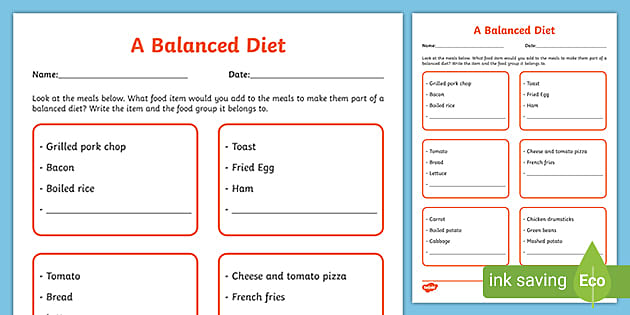
A good eating plan should include an adequate amount of each food group. This reduces the chance of developing chronic diseases such as cancer, heart disease, and diabetes. A good way to improve your diet is to include more fruits and vegetables. They are high on nutrients, low-calorie, and high in fiber. They are also rich in vitamins and minerals, which is important for good health. These tips can help to improve your dietary habits.
Apart from the importance of eating healthy, it is also important that you consider other factors that may influence your eating habits. Political, cultural, economic, and environmental factors all play a role in our habits. Therefore, eating habits of people can vary from one place or another over time. As people age, their dietary habits can change and they gain more information about the foods they eat. However, we continue to eat large amounts of unhealthy food despite all of these factors.
Although eating habits can be personal, it is important to have a consistent routine and stick to it. The ideal thing is to only eat when you're hungry. This will prevent you from overeating if you're stressed, bored, anxious, or stressed. You should find something that you can do without cravings, and will keep you from eating too much. You might prefer to walk than grab a snack. Plan your meals in advance. This will help you prepare a healthy, balanced breakfast to kick start your day.

Also, make sure to have healthy snacks for work and at home. It is important to eat as many healthy foods possible. Keep a healthy snack bowl in your car, or in your office. It will help you to stay focused on making healthy meals and snacks for your family. These snacks can be prepared ahead and stored in a lunch bag or at your desk. Then, if you're going out for the day, make sure you have some healthy snack options with you.
Research has shown that stress can have an impact on eating habits. However, it is important that you remember that most eating habits are based upon cultural and family traditions. People have preferences when it comes to what foods they eat. The average American consumes three meals per days. Americans are known to eat at least three small meals per week, with snacks in-between.
FAQ
These are the 7 secrets to a healthy life.
-
Eat right
-
Exercise regularly
-
Sleep well
-
Drink plenty of water.
-
Get enough rest
-
Be happy
-
Smile often.
Get immune enhancement with herbs and supplements
To boost immunity function, herbs and natural remedies are available. Ginger, garlic, ginger, echinacea and ginkgo biloba are some of the most common.
These herbal remedies should not be used in place of conventional medical treatment. Side effects may include nausea, diarrhea, stomach cramps (dizziness), headaches, dizziness and stomach cramps.
Exercise: Good and bad for immunity?
Exercise is good exercise for your immune system. Your body creates white blood cells when you exercise that fight infection. Your body also removes toxins. Exercise helps prevent diseases like cancer and heart disease. It can also lower stress levels.
However, overtraining can damage your immune system. When you exercise too hard, your muscles will become sore. This can lead to inflammation and swelling. The body then needs to make more antibodies to fight infection. However, these antibodies can also cause allergic reactions and autoimmune diseases.
So, don't overdo it!
What is the difference between fat and sugar?
Fat can be a source of energy that is obtained from food. Sugar is a sweetener found in fruits, vegetables, and other foods. Both fats as well as sugars contain the same amount of calories. But, fats have more calories than sugars.
Fats can be stored in the body, which can lead to obesity. They cause cholesterol buildup which can lead to strokes and heart attacks.
Sugars are quickly absorbed into the body and provide instant fuel. This causes blood glucose to rise. High blood sugar levels can cause type II diabetes.
Is it possible to have a weak immune system due to being cold?
It's been said that there are two kinds of people in the world; those who love winter and those who hate it. It doesn't really matter whether you love winter or loathe it. You might be wondering why it makes you miserable.
Our bodies were designed to work best in warm climates. Hot climates are where our food sources are most plentiful, and we evolved to thrive there.
We live in a very different environment than our ancestors. We spend a lot more time indoors, and are often exposed at extreme temperatures (cold and hot), and we eat processed foods over fresh.
As a result, our bodies aren't used to such extremes anymore. It means that when we do go outdoors, we are often tired, sluggish or even sick.
There are ways to combat these effects though. The best way to avoid these problems is to ensure that your body stays hydrated throughout the day. If you drink plenty of water, you'll help keep your body properly hydrated and flush toxins from your system.
Also, ensure you eat healthy food. Eating nutritious foods helps your body maintain its optimal temperature. This is especially helpful for people who spend a lot of time indoors.
Take a few minutes every morning to meditate. Meditation can help you relax your mind, body and soul. This makes it easier to manage stress and illnesses.
What should I eat?
Consume lots of fruits, vegetables. They are rich in vitamins that can strengthen your immune system. Also, fruits and vegetables are rich in fiber. This makes them filling as well as helping with digestion. Aim to eat five to six servings of fruit each day.
Water is essential for your body. Water helps flush toxins out of your body and makes you feel fuller between meals. Drink about eight glasses each day.
Consume whole grains and not refined. Whole grains contain all of their nutrients, including B vitamins and iron. Some nutrients have been removed from refined grains.
Avoid sugary beverages. Sugary drinks are loaded with empty calories and contribute to obesity. Instead, drink water, milk, or unsweetened Tea.
Avoid fast food. Fast food is low in nutritional value. Although it may taste delicious, fast food won't provide you with the energy you need for your daily activities. Stick to healthier options such as salads, soups, sandwiches, and pasta dishes.
Reduce your alcohol intake. Alcohol can lead to poor nutrition and empty calories. Limit your intake to two alcoholic drinks per week.
Red meat consumption should be reduced. Red meats are high-in saturated fat and cholesterol. Lean cuts of beef or pork, lamb and chicken, as well as fish, are better choices.
Statistics
- Extra virgin olive oil may benefit heart health, as people who consume it have a lower risk for dying from heart attacks and strokes according to some evidence (57Trusted Source (healthline.com)
- According to the 2020 Dietary Guidelines for Americans, a balanced diet high in fruits and vegetables, lean protein, low-fat dairy and whole grains is needed for optimal energy. (mayoclinichealthsystem.org)
- nutrients.[17]X Research sourceWhole grains to try include: 100% whole wheat pasta and bread, brown rice, whole grain oats, farro, millet, quinoa, and barley. (wikihow.com)
- According to the Physical Activity Guidelines for Americans, we should strive for at least 150 minutes of moderate intensity activity each week (54Trusted Source Smoking, harmful use of drugs, and alcohol abuse can all seriously negatively affect your health. (healthline.com)
External Links
How To
27 steps to a healthy lifestyle if your family only eats junk food
It is easy to eat healthy when you cook at home. However, many people are not skilled in preparing healthy meals. This article will help you make healthier choices while dining out.
-
Look for restaurants that offer healthy choices.
-
Before you order any meat dishes, make sure to order salads or vegetables.
-
Ask for sauces made without sugar.
-
Avoid fried foods.
-
Choose grilled meats over fried.
-
If you don't really need dessert, do not order it.
-
After dinner, make sure you have something to eat.
-
Take your time and chew slowly.
-
Get plenty of water when you eat.
-
Don't skip breakfast and lunch.
-
Every meal should include fruit and vegetables.
-
Consume milk and not soda.
-
Try to avoid sugary drinks.
-
Limit the amount of salt in your diet.
-
Try to limit the number of times you go to fast food restaurants.
-
Ask someone to join you if you cannot resist temptation.
-
Don't let your children watch too much TV.
-
Turn off the television during meals.
-
Do not consume energy drinks.
-
Take regular breaks from the office.
-
Exercise early in the morning.
-
Move every day.
-
Start small and progress slowly.
-
Set realistic goals.
-
Be patient.
-
Even if you don’t feel like exercising, make time for it.
-
Positive thinking is important.